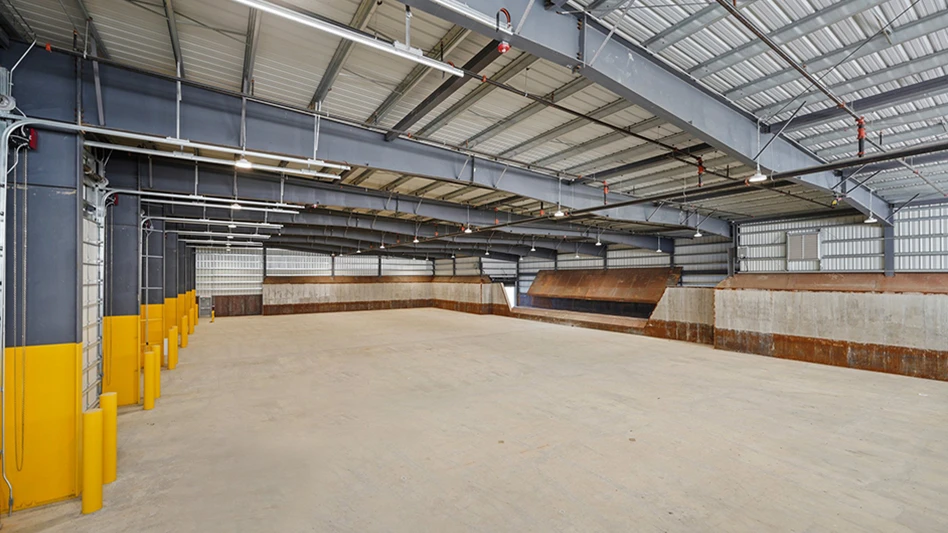EREF awards two research grants
The Board of Directors of the Environmental Research and Education Foundation (EREF), Raleigh, North Carolina, has awarded research grants to projects at North Carolina State University and Yale University.
North Carolina University was awarded $127,525 for its project “Development and Assessment of Cost-Effective Sustainable Integrated Organics Management Strategies.” This project will explore the fiscal and environmental costs and benefits associated with each solid waste management (SWM) process.
Jurisdictions representing more than 20 percent of the U.S. have considered or implemented policies that require some food waste diversion from landfills, and there is increasing interest in opportunities to manage organics in municipal solid waste (MSW), the researchers say.

Given the interrelated nature of solid waste management systems, any new policies or strategies must be fully analyzed to ensure that overall solid waste system performance is not negatively affected. This is especially true considering how waste generation, composition, the energy system and policies are changing, the reasearchers add.
The Solid Waste Optimization Life-cycle Framework (SWOLF) is a life-cycle assessment (LCA) optimization tool developed for integrated analysis of SWM systems as part of a previous EREF grant. SWOLF consists of state-of-the-art life-cycle process models for solid waste collection, recycling, landfilling, composting, anaerobic digestion (AD), waste-to-energy (WTE) and gasification that will uniquely facilitate integrated analyses of organics diversion strategies.
SWOLF's optimization capability will be used to perform the first dynamic multistage optimized LCA to assess the most cost-effective ways to sustainably manage organics in consideration of changing waste generation, composition and policies through the following research objectives:
- develop projections for MSW generation and composition for next 30 years;
- develop projections of fuel and electricity costs and emissions under various GHG policy, renewable energy policy and fuel price scenarios for next 30 years;
- finalize system-specific life-cycle process-models; and
- use projections and process models in SWOLF to analyze the cost and environmental impacts associated with organics management strategies and policies.
The anticipated date of completion is August of 2017. More information on SWOLF is available at http://bit.ly/1U8sm4B.

Yale University was awarded $150,000 for its project, “Making up for Lost Time (and Space): Quantifying Non-hazardous Industrial Waste Output and Beneficial Use Opportunities in the U.S.”
This project will generate current information regarding the utilization of nonhazardous industrial waste. Using nonhazardous industrial wastes (NHIW) as substitutes for virgin raw materials has the potential to provide environmental and economic benefits throughout the economy, researchers say. Evaluating the nationwide potential of this sustainable waste management strategy requires an assessment of the NHIW generation rate, the most recent of which dates to the mid-1980s, according to the researchers.
The proposed project will make up for lost time by filling this three-decade-old data gap. In so doing, the project team will strengthen the path for the waste management industry to be a key facilitator of and participant in large-scale reuse and recycling of NHIW. Key research objectives are:
- to yield robust, up-to-date estimates of quantities and physiochemical properties of NHIW based on a sector-by-sector analysis of 14 major manufacturing sectors in the U.S.;
- to catalog demonstrated and newly identified material substitution and beneficial use pathways for high-tonnage NHIW categories within existing landfill footprints (as alternative cover and construction fill) and beyond; and
- to codify methods for regular revision and update of NHIW estimates based on indirect data (other than directly-reported data on NHIW generation).
This project is expected to take nearly two years to complete.
Get curated news on YOUR industry.
Enter your email to receive our newsletters.Latest from Waste Today
- ReMA board to consider changes to residential dual-, single-stream MRF specifications
- Miller Environmental Group Inc. appoints CEO
- DPI acquires Concept Plastics Co.
- Laurel Mountain Capital announces investment in 5280 Waste Solutions
- Cielo investor requests annual meeting
- WIH Resource Group celebrates 20th anniversary
- NWRA: NIOSH cuts a step in the wrong direction
- Valicor Environmental services acquires Affordable Waste Management








